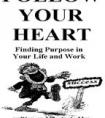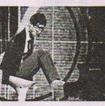句型转换。①HisnameisMike.(对画线部分提问) ____ ____ name?②MynameisMary.(对画线部分提问) ____ _____name?③AreyouBob?(作肯定回答) ____ ____,____.④IshisnameAla-七年级英语
英语中某些表示瞬间意义的系动词不能与“for+时间段,since+时间点,how long until+时间,by + 时间,so far”等直接连用。例如:
①不能说:He has become a teacher for 2 years.
应改为:He has been a teacher for 2 years.
②不能说:He has turned writer since 3 years ago.
应改为:He has been a writer since 3 years ago.
或It is three years since he turned writer.
③不能说:He got angry until his child came back home.
应改为:He didn’t get angry until his child came back home.
5.系动词能接几种表语(从句)
系动词除了接adj.\n.\prep.短语,某些adv.以外,还可接以下几种表语形式:
①能接as if/as though表语从句的系动词有:look(看起来),smell(闻起来),sound(听起来),feel(觉得);appear(显得),seem(似乎)。例如:
It looks as if we are going to have snow.看样子天要下雪了。
He looked as if he had just stepped out of my book of fairy tales.
他看来好像刚从我的童话故事中走出来似的。
She seemed as if (though) she couldn’t understand why Laura was there.
看来她好像不能理解为什么劳拉呆在那儿。
It sounds to me as though there’s a tap running somewhere.
我好像听到某处水龙头流水的声音。
She felt as if her head were splitting.
她仿佛觉得她的头要裂开了。
The river appeared as if enveloped in smog.
那条河好像笼罩在烟雾之中。
It seems as if it were spring already.
好像已是春天了。
②可用于“It+系动词+that从句”结构的有:seem, appear, 不可用be, look。如:
It seemed that he had made some serious mistakes in his work.
好像他在工作中犯了严重错误。
It appeared that he was talking to himself.
好像他在自言自语。
③能用不定式作表语的系动词有:be, seem, get, look, appear, prove, grow.
Her job is to look after the children.
她的工作是照料孩子们。
He seems not to look after the children.
他好像不是她的父亲。
She looks to be a young girl of twenty year-old.
她看起来像是一个20岁的年轻姑娘。
He didn’t appear to dislike it.
看不出他憎恨此事。
My advice proved to be wrong.
我的建议证明是错误的。
He will grow to like this work gradually.
他会逐渐喜欢这个工作的。
④能与there连用的系动词有:be, appear, seem.
There appeared to be only one room.
那儿好像只有一个房间。
There seems(to be)no need to go.
似乎没有必要走。
6.能用两种否定形式的系动词有两个:seem, appear.
举例说明:
It doesn’t seem that we can get our money back.= It seems that we can’t get our money back.
He seems not to be her father.= He doesn’t seem to be her father.
The baby doesn’t appear to be awake.= The baby appears not to be awake.
7.后接作表语的过去分词可构成系表结构
能构成系表结构的系动词通常有两个:第一个是常见的be(is, am, was等);第二个是get,口语中常用。
当二者作系动词用时,它们均表示一种存在状态,而不表示被动动作;当二者作助动词用时,后接作谓语的过去分词构成被动语态。
Be + P.P常可以用get + P.P.来代替,但是并不是be系动词总是可以用get来代替。Get + P.P.系表结构常用于以下两种情况:
1)表示偶然的、突发性的、意想不到的被动动作的结果或状态。
Last night I got caught in the downpour.昨夜我被雨淋了(表示意想不到)
The new car got scratched.新车给刮坏了。(表突发性)
2)表示对自身所作的事。如get dressed, get lost等。
John got injured while playing football last Saturday.约翰上周星期六踢足球时受了伤。
They got married last month.他们上个月结婚了。
另外,要注意区分系表结构与被动语态结构的用法。
考点名称:一般疑问句
- 一般疑问句:
是疑问句的一种。通常用yes,no来回答的疑问句叫做一般疑问句。口语中若无特殊含义,句末用升调。
其结构是:系动词be/助动词/情态动词+主语+其他成分?
通常回答为:
肯定:Yes+主语+提问的助动词
否定:No+主语+提问的助动词+not
例如:
Are you from Japan? Yes, I am./No, I'm not.
Do you live near your school? Yes, I do./No, I don't.
Can you speak French? Yes, I can./No, I can't. - 一般疑问句的特性:
1.将陈述句变为一般疑问句时,如句中有be 动词(am/ is/ are)时,可直接将它们提至主语前。
如主语为第一人称,应将其改为第二人称。如:
I'm in Class 2Grade 1. →Are you in Class 2Grade 1﹖
We're watching TV. →Are you watching TV﹖
2.陈述句中有情态动词(can、may、must …)时,也可直接将它们提至主语前,即可成为一般疑问句。如:
He can swim now. →Can he swim now﹖
The children may come with us. → May the children come with us﹖
3.陈述句中只有一个实义动词作谓语且其时态为一般现在时,变为一般疑问句时要在句首加do或does主语后的实义动词用原形。如:
I like these animals. →Do you like these animals﹖
She wants to go to the movies. → Does she want to go to the movies﹖
4.一般疑问句一般读升调(↑)
5.一般疑问句有时不用yes或 no 回答。如:
Are they in town now﹖
I think so.
May I sit here﹖
Certainly.
Does he like soccer﹖
Sorry I don't know.
6. 一般疑问句的第一单词总是虚词,读的时候要读轻声。 - 陈述句变为一般疑问句技巧:
根据一般疑问句不同的家族,可以用不同的方法将陈述句变为相应的一般疑问句。
1、第一家族:含be动词或情态动词的句子
秘诀:一调二改三问号
一调:即把句中的be或情态动词调到主语前;
二改:改换主语称谓,即将句中的主语I\my \mines\we\our\ours等。第一人称分别改为相应的第二人称you\your\ yours等;
三问号:句末的句号改为问号。如:
Eg. I am an English teacher. → Are you an English teacher?
Eg. We can speak English fluently. → Can you speak English fluently?
2、第二家族:含行为动词(或称为实义动词)的句子
秘诀:一加二改三问号
一加:即在句首加助动词Do或Does;
二改:1、把谓语动词改为原形;2、改换主语称谓(同第一家组);
三问号:句末的句号改为问号。
Eg. We read English every morning. → Do you read English every morning?
Eg. Tom’s father listens to English on the radio every evening. →Does Tom’s father listen to English on the radio every evening?
特别注意:对于第二家族一定要注意动词的还原,因为时态与数的变化已经体现在助动词上了。
3、加强记忆口诀:
肯变一,并不难,can 或be提在前;
谓语若为行为动,do 或does句首用。
- 最新内容
- 相关内容
- 网友推荐
- 图文推荐
| [家长教育] 孩子为什么会和父母感情疏离? (2019-07-14) |
| [教师分享] 给远方姐姐的一封信 (2018-11-07) |
| [教师分享] 伸缩门 (2018-11-07) |
| [教师分享] 回家乡 (2018-11-07) |
| [教师分享] 是风味也是人间 (2018-11-07) |
| [教师分享] 一句格言的启示 (2018-11-07) |
| [教师分享] 无规矩不成方圆 (2018-11-07) |
| [教师分享] 第十届全国教育名家论坛有感(二) (2018-11-07) |
| [教师分享] 贪玩的小狗 (2018-11-07) |
| [教师分享] 未命名文章 (2018-11-07) |


![—______ is Jenny.—I’m Gina. Nice to meet you.[ ]A. I’mB. His nameC. I’mD. My name-七年级英语](http://www.00-edu.com/d/file/ks/4/2/wuzhudaici/2019-11-29/small48b153aa794daeb090c5d2505d5cbbac1575042450.png)



